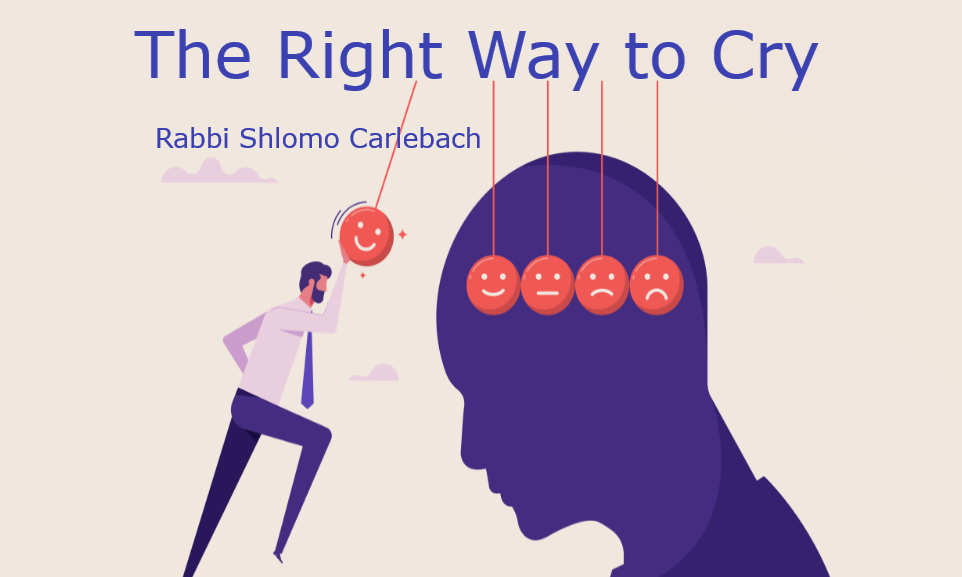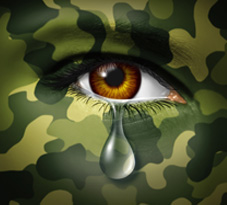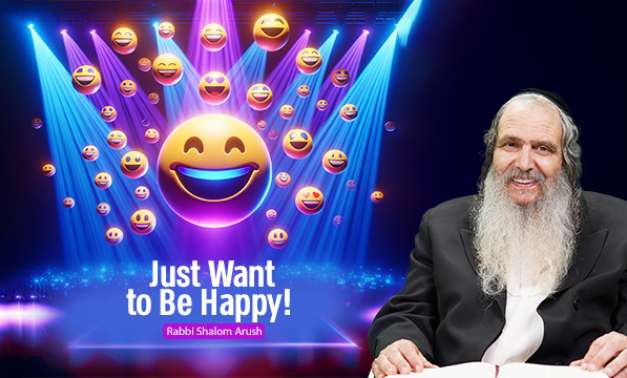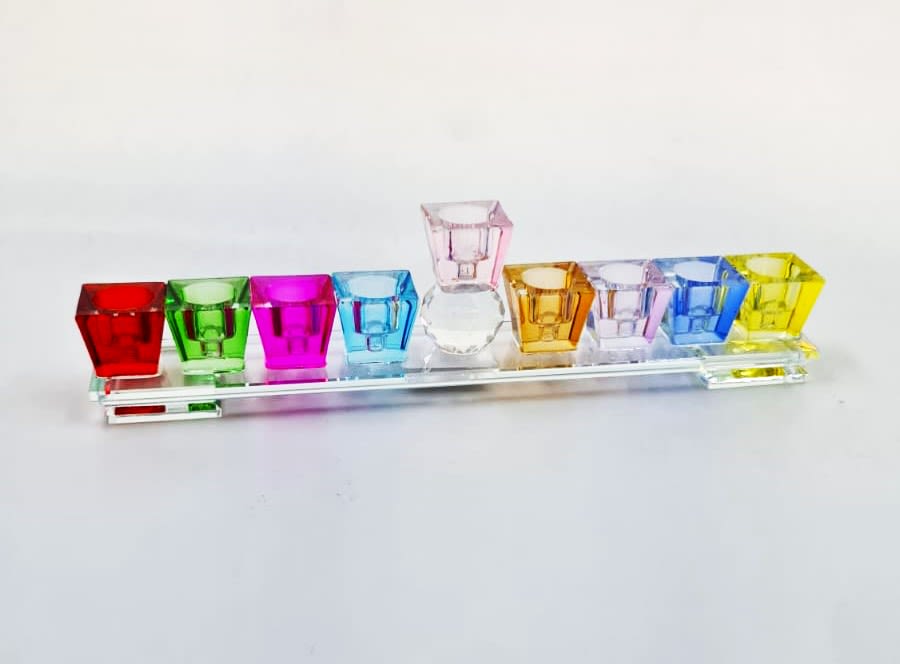
The Right Way to Cry
If you see another person after you cry, do you feel love for them or do you hate them? There's a right way to cry and a wrong way too...

Compiled and edited by Ziv Ritchie
Sadness is a sickness, not an emotional problem. It is absolutely a sickness and you have to get rid of it.
The Baal Shem Tov says if you want to know whether you are really serving G-d, it is simple: If my heart is filled with joy each time I put on tefillin, and each time I do something good my heart is filled with joy, then I am serving G-d. If I am not on that level, then I am just doing mechanical things. Though even that is very holy, and I’ll be rewarded in Heaven for doing it, but it is heartbreaking.
If you are sad, you make G-d uncomfortable!
If I look sad, what happens to the person sitting next to me? He feels a bit uncomfortable. In fact, even if he loves me a lot, he will just overcome those uncomfortable feelings and say, “I have to stick it out. He’s my friend, so I have to stick around while he is crying.” But this doesn’t go, right?
But imagine if I am sitting here and mamash laughing like the Ropshitzer Rebbe. Everyone will feel so very comfortable. Why? It’s very simple. Imagine if you looked down into the abyss, to the abyss of the abyss; it  would be very uncomfortable – frightening. The truth is, when you see someone sad, at that moment you are mamash confronted with nothingness. You see that this person is struggling between ‘being’ and ‘non-being.’
would be very uncomfortable – frightening. The truth is, when you see someone sad, at that moment you are mamash confronted with nothingness. You see that this person is struggling between ‘being’ and ‘non-being.’
Imagine if you see me standing on the roof with one foot hanging over the edge. You say, “Listen, do me a favor. You make me nervous, even if you are the greatest acrobat in the world. Put your foot back on the roof! I am afraid to see this.”
You have to realize, it is the same way with G-d. When you walk around sad, you make G-d uncomfortable. G-d says, “I love you. I’m your G-d. I signed a contract at Mt. Sinai and I will stick to it; I’ll be with you. But I really don’t feel comfortable with you when you are sad.”
When you smile with joy and you look at somebody, they look back at you; but, when you cry, they can’t really look back at you. Mamash, they try, but they can’t look back at you. You can smile eye to eye, but you can’t cry eye to eye.
We know this world is just a little mirror of Heaven. You have to realize it’s very beautiful when you cry, but it’s not really so good. You make G-d feel uncomfortable about it.
I’m not talking about crying in general, I’m talking about atzvut, this dead kind of sadness.
It depends on how you’re crying. You can cry with being, or you can cry with nothingness.
On Rosh HaShanah and Yom Kippur, we are crying all the time. They are the holiest tears. Imagine if someone says to you, “I love you so much, I really want to be the greatest friend to you,” and he is crying while he’s saying it (cry with being), it will open up your heart in a thousand ways.
But if someone cries, “I was in the beauty parlor, sniff, sniff, and they cheated me, sniff, sniff, and I paid five dollars extra,” what do you feel then? Oy vey. And even if this woman is your mother, and you really love your mother, but you just can’t stand it. So you say, “Oy vey,” and you pat her on the back.
There is a very deep difference between crying before somebody and crying about something. If I am crying before G-d, it is the holiest thing. Maybe He is crying with me. But if I’m crying about something and I’m complaining and telling it to G-d, it’s not so good. I have to cry before G-d.
The most important thing you have to know, is: If you are shining here below, G-d is shining. If you smile down below here, then G-d smiles back at you from above. Something very holy is going on between you and G-d.
The Difference Between Marirut and Atzvut
The word sadness is not a good translation. The word Atzvut means sitting there moping away.
There are two kinds of sadness. There is marirut, which is bitterness, which is living sadness, and there is atzvut, which is dead sadness.
Bitterness is: “I wish I could do better. Gevalt, why didn’t I do better? I didn’t do it right. Why didn’t I do better?” I’m sad just knowing I didn’t do it good enough. This is a living sadness. And then I go out from there, and I want to do better.
The Baal Shem Tov says the difference between marirut and atzvut is very simple: If you see another person after you cry, do you feel love for them or do you hate them? If you cry in the living kind of crying, then every person looks beautiful to you. You think, “I’m not so beautiful, but they are so beautiful. I’m so happy for and together with them.” But if you have a dead kind of sadness, atzvut, then everyone looks ugly to you.
Sometimes you cry and you look out the window and say, “Oh, those disgusting creatures walking down the street.” With this kind of crying, G-d can’t look at you either.
If a person wants to know at what level his joy is, it is very simple. If you feel one with the world, it is because you feel the oneness of G-d.
So if you walk around and say you are filled with joy, but you can’t stand people, it is not G-d joy.
* * *
Excerpt from “Rebbe Nachman Says”, The Teachings of Rabbi Nachman of Breslev as Taught by Rabbi Shlomo Carlebach z”tl
Rabbi Shlomo Carlebach’s books are available online at the Breslev Israel Store.











Tell us what you think!
Thank you for your comment!
It will be published after approval by the Editor.